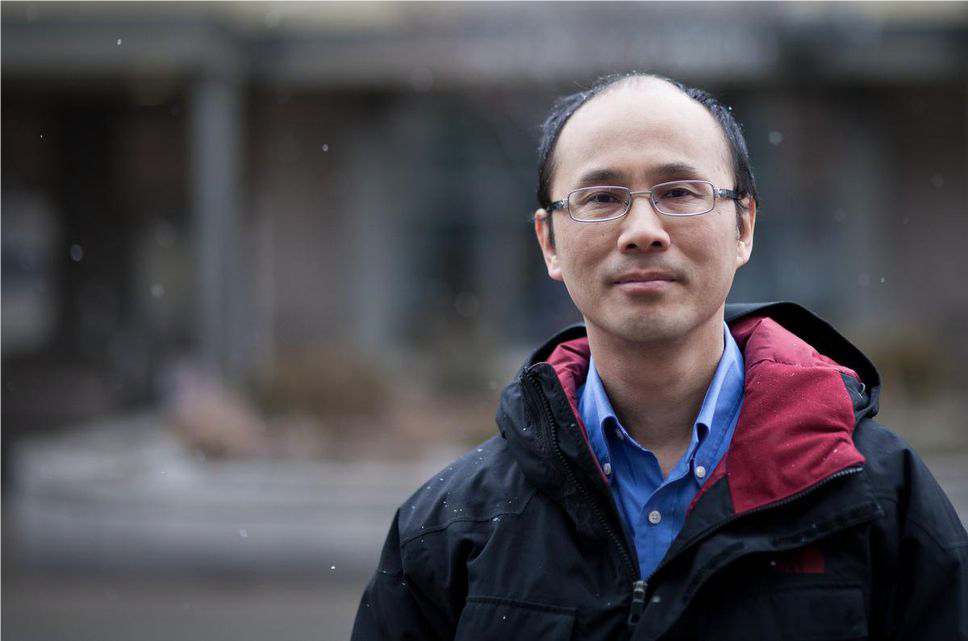Brampton Mayor, Patrick Brown is demanding Ottawa help after an asylum claimant camped outside a shelter was found dead Wednesday morning.
He said that there could be more deaths by next week if people are still forced to sleep outside with shelters at full capacity.
“We’re about to get into cold weather,” Brown said at a Thursday media conference. “That blood is on our hands if we don’t step up and help.”’
Peel Region Police describe the dead man as being in his 40s. The body was found in a tent at Dundas Street East and Warton Way in Mississauga near a former shelter at 7:31 a.m. Wednesday. Police said in an email statement they are currently waiting to hear back from the coroner’s office to determine the cause of death, but say it is not considered suspicious.
Behind Brown were church leaders who have been taking in asylum seekers as shelter pressures grew. They also called on the federal government to get people off the streets.
Increased push for federal action from the Greater Toronto Area (GTA) comes after Toronto sent a letter last week requesting Ottawa open its armouries to be used as emergency shelters. The letter is also asking for long-term investments including setting up a reception centre at Pearson Airport that would receive and support refugees.
Previous city council meetings have also supported opening centres in the GTA and Hamilton areas amid claimants being transferred outside of Toronto.
Brown said shelter capacities in the Peel Region are at 301 per cent and up to 150 people on average are being forced to sleep outside.
He said they have “never had to turn anyone away” until this year as asylum claimants make up 68 per cent of shelter users in the region.
“We’ve been warning senior levels of government since July that this was going to happen,” Brown said.
“We’ve just heard excuses from other levels of government that help is on its way, that it’s going to come, but it hasn’t yet,” he said.
Brown said three “positive meetings” already occurred with Immigration Minister Marc Miller about finding solutions to stem the rise in unhoused asylum claimants. He said Miller called him 15 minutes before the Thursday press conference to tell him that “help is on its way.”
“I believe he appreciates, in a very honest way, the urgency of the situation. But this cannot wait another month,” Brown said.
The federal government allocated $97 million in refugee support funding to Toronto in July despite the city requesting $157 million to meet demands in 2023.
Alejandra Bravo, Davenport Councillor, who presented the letter sent to Ottawa, said Toronto has not yet received the allocated funds offered in the summer. She expects the city to spend more than $200 million “out of pocket” by the end of the year to support refugees.
Toronto has also requested the federal government to reimburse those expenses.
“This is putting us in an impossible situation,” Bravo said. “The city is already $1.5 billion short of funds to operate.”
Bravo said Ottawa must fund all services for asylum claimants. She said more refugees have been coming to Toronto after the Roxham Road crossing between Quebec and the United States was closed in March.
She said Toronto tried creating winter plans that can meet demands. However, the push for federal help comes because around 320 people are forced to sleep outside in the city with no spaces left in shelters and warming centres.
The city’s winter readiness plan changed its warming centres to open at -5 C instead of at the -15 C extreme cold weather alert threshold. The decision was made in part because of a 2019 report from the MAP Centre for Urban Health Solutions which found that 72 per cent of hypothermia cases in adults experiencing homelessness from 2004 to 2015 occurred when temperatures were warmer than -15 C.
Dr. Stephen Hwang, director of the MAP Centre and researcher on the report, said governments need to consider both short-term and long-term solutions.
“We need to think in the short term about preventing death and suffering on the street,” Hwang said.
“But in the longer term, and I mean years to decades, we’re going to have to commit a lot of resources to address the housing situation that we’re in,” he said.
Hwang said the funds will not be able to come from municipalities and that the provincial and federal governments will need to help.
The Ontario government announced Friday a $15 million investment into Toronto’s Health Services for Individuals Experiencing Homelessness Initiative that was launched in 2020.
The initiative provides primary health care, mental health, and other support services to people experiencing homelessness.

